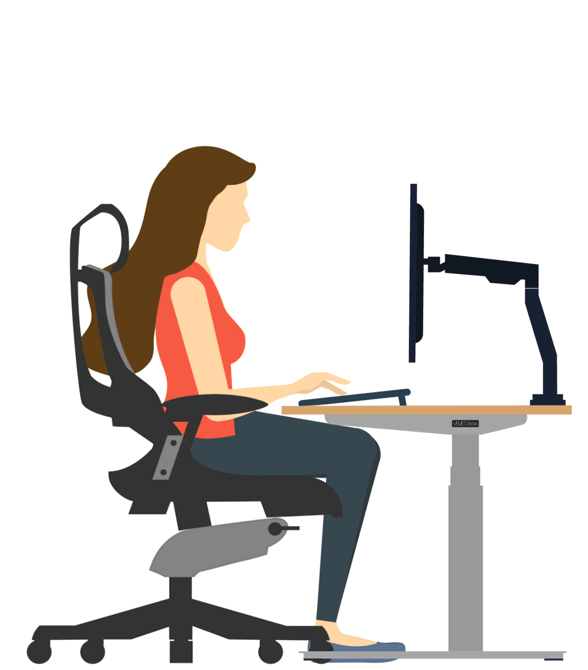Benefits of a
standing desk
Work better. Live healthier.
Join the standing desk revolution.
So is it better to sit or better to stand when doing work? At least as it relates to focus and productivity, the answer is: both.
Andrew Huberman
Neuroscientist & Professor at Stanford School of Medicine
Andrew Huberman is a Stanford professor and world class communicator. His research is respected among fellow professors and neuroscientists. He hosts the Huberman Lab podcast, which consistently ranks among the top 10 podcasts on Spotify and Apple and has more than 3.5 million subscribers on YouTube.
In this Andrew Huberman podcast clip, he discusses standing and sitting while working. A few of our favorite quotes are below.
"People who decreased their sitting time by about half each day… showed incredibly significant effects on reduced neck and shoulder pain, increases in subjective health and vitality in work-related environments, and perhaps most importantly, improvements in cognitive conditioning."
Link to timestamp: 1:46
"What this means is that we should probably spend about half of our work time standing and about half of it sitting, but not all sitting and not all standing. If you have to do all of one or the other, standing is going to be better than sitting."
Link to timestamp: 3:07
"Most everybody, at least in the USA, is not getting sufficient cardiovascular exercise or movement throughout the day. Standing at one's desk can improve some of those health metrics and can improve productivity."
Link to timestamp: 3:52
Huberman references the 2021 study "Effects of a Workplace Sit–Stand Desk Intervention on Health and Productivity" published in the International Journal of Environmental Research and Public Health, which he likes because it underscores the positive impact of sit-stand desks on both employee well-being and productivity. The study found that sit-stand desks in the workplace led to notable health benefits, including reduced neck and shoulder pain, improved health, and a marked increase in work performance, mood, and energy.
Source:
Effects of a Workplace Sit–Stand Desk Intervention on Health and Productivity
A happier, healthier way to work
The scientifically proven cure for all our workday sitting problems.
No matter how much we focus on health, office work routines are not designed to harness the health benefits of movement. Between morning and afternoon commutes, desk work, meetings, meals, and catching up on our favorite TV shows, we spend most of our waking hours sitting down.
What's a scientifically proven antidote to workday sitting? Height adjustable desks (aka standing desks; sit/stand desks) enable the health benefits of movement by allowing you to freely switch between sitting and standing.
A growing body of research supports the benefits of standing desks and the myriad ways they improve our lives, from boosting productivity to preventing adverse health conditions caused by a sedentary workday.
